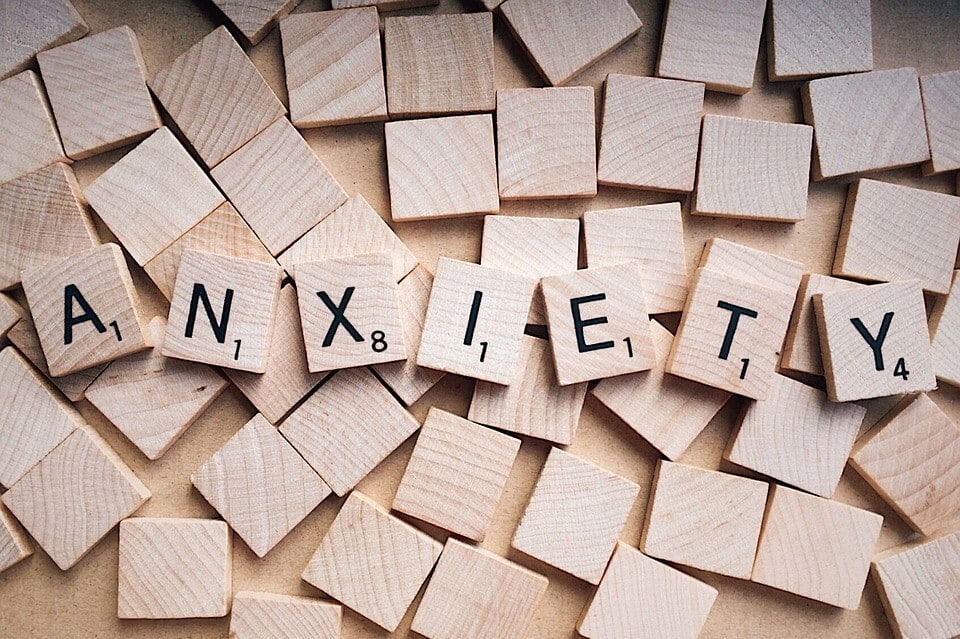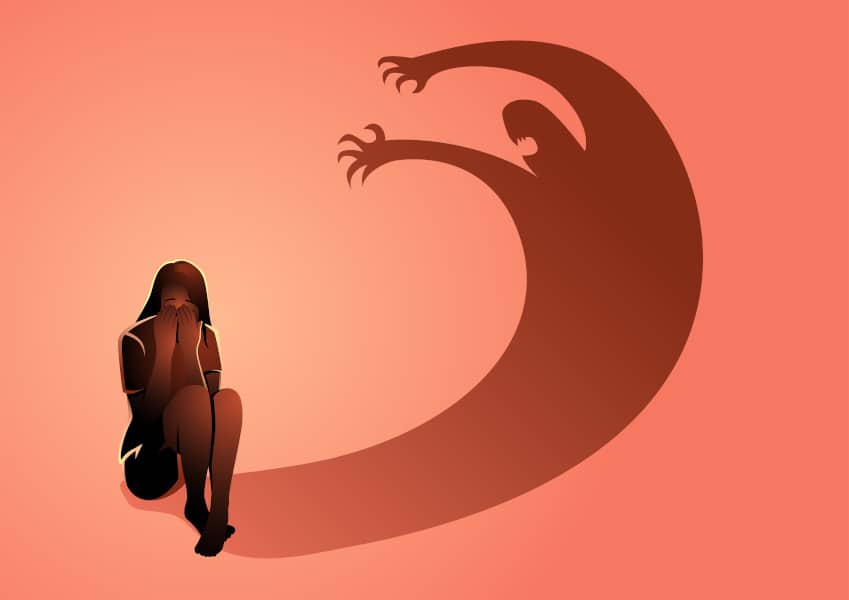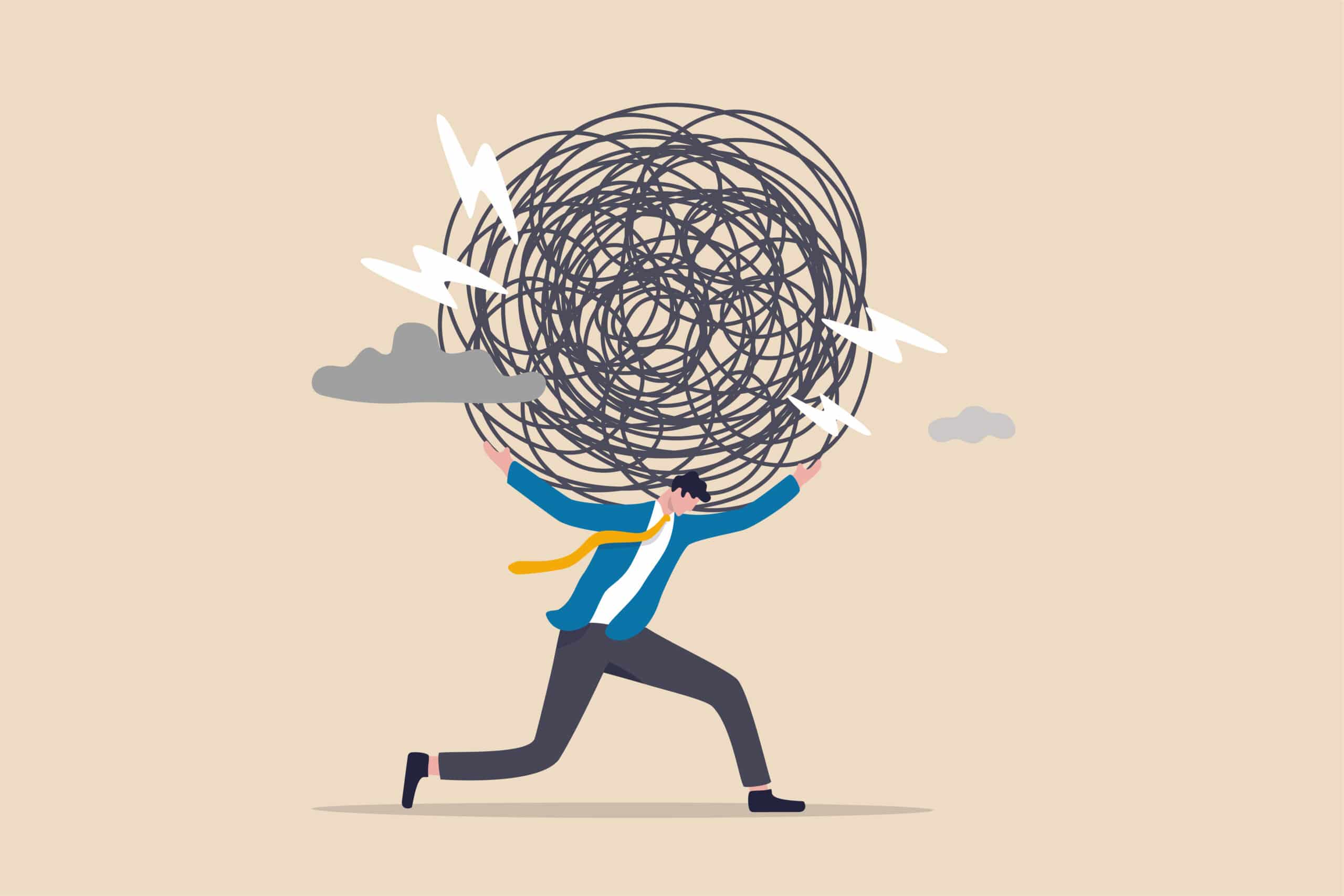
Feeling anxious or stressed is part of everyday life, however, when your anxious feelings start to interfere with daily functioning it could be something more serious. Rather than being a normal, anxiousness that leads you to feel frightened, distressed, or uneasy for no reason could be symptoms of an anxiety disorder. Left untreated, an anxiety disorder can severely diminish the quality of life.
What are anxiety disorders?
Anxiety disorders are the most common mental illness in America, with just over 21% of adults affected each year. What surprises many is that there are many types of anxiety disorders.
Generalized Anxiety Disorder (GAD): Affecting over 6.8 million adults each year, GAD is characterized by chronic worrying about everyday life and activities, lasting at least six months. Although people with GAD don’t know how to stop the cycle, they do realize their anxiety is more intense than needed. GAD can be accompanied by physical symptoms, such as fatigue, trembling, muscle tension, headache, stomachache, or nausea.
Panic Disorder: Characterized by spontaneous episodes of fear that triggers severe physical reactions, a panic disorder can strike repeatedly and without warning. Individuals with panic disorder are often preoccupied with the fear of a recurring attack. A panic disorder can cause physical symptoms such as chest pain, heart palpitations, shortness of breath, dizziness, abdominal discomfort, feelings of unreality, and fear of dying.
Social Anxiety Disorder: Also known as social phobia, social anxiety disorder is intense anxiety or fear of being judged, rejected, or negatively evaluated in a social situation. Physical symptoms such as rapid heart rate, nausea, sweating, and possibly panic attacks can occur. Social anxiety disorder affects over 15 million US adults each year and is the second most commonly diagnosed anxiety disorder following a specific phobia.
Phobia: There are many things such as heights, spiders, tight spaces, and etc. that can make us feel uneasy or frightened. But a specific phobia brings a disabling and irrational fear of something that poses no real threat or danger and leads to an avoidance of objects or situations. Phobias can disrupt daily life and strain relationships as the individual will do what they need to avoid the situation or feelings of phobic anxiety.
How can I calm my anxious thoughts?
Whether it is anxious thoughts, everyday stress, or just uneasy feelings there are a few strategies that can help you manage your anxiety.
- Drink less caffeine. The spiked adrenaline levels from caffeine can cause some people to feel anxious and even trigger panic attacks.
- Physical activity can help to decrease stress hormones in the body, as well as the focus on the exercise and distract from ruminative thoughts.
- Meditation and Mindfulness. Placing the focus on feelings, thoughts, or body sensations at the moment can help to eliminate negative thought patterns. Incorporating yoga and deep breathing will help decrease anxiety, depression, and stress.
- It is always important, both physically and mentally, to get enough sleep. When feeling stressed or anxious, your body needs additional rest. Make a goal to get a minimum of 8 hours of sleep each night.
- Listen to music. When stress and anxiety levels are high, turn on some music to activate the rewards system in the brain that increases the feelings of pleasure. Studies have also found that listening to music can boost the immune system which reduces stress.
- Educate yourself. Learn what triggers your anxiety. Is it work, school, home? Keep a journal of when your anxiety levels are high and look for a pattern. Knowing what triggers anxiety can help you cope with the disorder.
- Avoid procrastination. To make things easier, don’t put off important tasks or projects. Procrastination can lead to even greater anxiety, and research shows this can trigger stress-related health problems.
Even with anxiety and stress-reducing strategies, there may be the need to seek professional help if it becomes severe and interferes with daily functioning. These increased levels of intensity can be signs of an anxiety disorder.
How do I get help?
At Lifeskills South Florida, we treat mental health issues, including anxiety disorders, using evidence-based therapeutic modalities. Since 1991, we have offered adults and their family’s a holistic approach to treatment that provide physical, mental, emotional, and spiritual healing. We understand the difficulties that can come with suffering from a mental disorder, which is why we use a customized treatment approach to meet each client’s specific needs as they recover.
Our five clinical pathways help clients address the thoughts, feelings, and emotions that are contributing to their disorder.
- Dialectical Behavioral Therapy (DBT) is provided through a comprehensive Linehan compliant 13-week program, as well as auxiliary DBT groups for those focusing on other clinical pathways.
- Cognitive Behavioral Therapy (CBT) is a solution-focused, evidence-based treatment approach. At the most basic level, CBT can be described as understanding and challenging irrational, often negative thinking.
- Cognitive Remediation Therapy (CRT) is a computer-based training technique that facilitates improvement in targeted cognitive areas, such as executive functioning and processing speed.
- Substance Use Disorder helps to treat clients who are facing a complex substance use disorder and/or a process addiction.
- Trauma involves a variety of interventions following a 3-stage approach.
Our professional team provides comprehensive mental health treatment in levels of care designed to meet the client’s needs as they move through the treatment process.

Lifeskills is here to help you find strength and overcome the challenges of your mental health disorder. For more information on our program, call our admission team at 954-953-1742 or complete our contact form.




